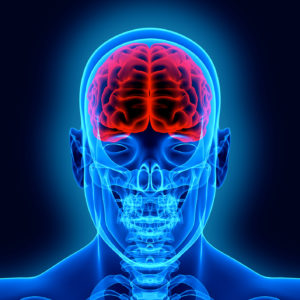
Did the NCAA fail to protect student-athletes from concussions and their repercussions? According to a lawsuit filed in September 2011 in the U.S. District Court for the Northern District of Illinois by two former college football athletes, it did. The class action lawsuit claims that the NCAA turned a blind eye to coaches who instructed their players to use their heads for tackling, failed to establish a system for screening head injuries, and failed to fulfill its financial obligations to injured student-athletes who require ongoing medical treatment.
The lawsuit points to a growing body of evidence linking concussions to depression, dementia and early-onset Alzheimer’s, among other medical problems, and accuses the NCAA of failing to to enforce safety measures that it enacted in the 1970s to protect its student-athletes.
The plaintiffs seek to force the NCAA to institute a medical monitoring program to track the long-term effects of head injuries in former college football players and to pay for any medical care required as a result of the head injury.
According to a 2003 study, college football players require a full seven days to return to pre-concussion health, and that athletes with a history of concussions are more likely to sustain future concussions. Despite this information, the current NCAA system allows athletes to return to the field the day after sustaining a concussion.
The name plaintiffs in the class action litigation are former University of Central Arkansas wide receiver Derek K. Owens and former Northwestern University offensive lineman Alex Rucks, both of whom claim that have suffered irreparable brain trauma as a result of concussions sustained during their college football careers.
This is not the first lawsuit of its kind that has been filed against the NCAA. Earlier in September, former Eastern Illinois player Adrian Arrington filed a lawsuit alleging that the NCAA failed its student-athletes — choosing instead to sacrifice them on an altar of money and profits by neglecting to adopt stricter standards for promoting safe play and tackling techniques. The NCAA calls the most recent lawsuit merely a copycat of the Arrington lawsuit and says that it contains gross misstatements.
According to the Brain Injury Association of America, an estimated 3.8 million sports- and recreation-related concussions occur in the United States each year. Amidst growing concerns about head injuries to young athletes, the NCAA now requires member schools to enact concussion-management plans whereby schools must inform students about the signs and symptoms of concussions, incorporate a process for removing students who show signs of a concussion from play, and prohibit students with concussions from returning to play the same day they are injured. Some question whether such practices are enough to prevent head trauma, however.
As we previously reported, earlier this year 75 ex-football players filed suit against the National Football League (NFL) alleging that the NFL knew of the harmful effects of multiple concussions as early as the 1920s but kept that information from players until 2010.
Concussions and other traumatic brain injuries that can cause serious injuries if they go ignored for too long. The Chicago personal injury lawsuits at Ankin Law are committed to raising public awareness of the dangers and long-term effects associated with multiple concussions and other brain injuries.
Howard Ankin of Ankin Law (www.ankinlaw.com) handles workers’ compensation and personal injury cases. Mr. Ankin can be reached at (312) 346-8780 and howard@ankinlaw.com.
ANKIN LAW
Chicago Workers Compensation | Chicago Personal Injury | Chicago Motor Vehicle Accidents
Chicago Wrongful Death | Chicago Social Security Disability | Chicago Class Act ion Lawsuits
Spin Master, a Canadian toy manufacturer, has agreed to pay $1.3 million to settle claims with the U.S. Consumer Product Safety Commission (CPSC) regarding the import and sale of Aqua Dots, which is a banned hazardous substance. Aqua Dots are popular colored arts and crafts beads that stick together when sprayed with water to form various designs and shapes.
Aqua Dots, imported into the United States in 2007, were recalled in November 2007 after the CPSC received reports of two children falling into comas and becoming hospitalized after ingesting the beads. Tests have showed that a chemical coating on the toys, when ingested, can metabolize into the drug gamma hydroxybutyrate (GHB), also known as the date rape drug. Children who swallow the beads could fall into a coma, develop respiratory depression, or have seizures.
The CPSC alleged that Spin Master knowingly failed to report a defect and hazard associated with Aqua Dots and knowingly imported and sold a banned hazardous substance. Spin Master allegedly received reports of children becoming ill after ingesting Aqua Dots in mid-October 2007. Around this time, Spin Master also learned that the toy contained 1.4-butylene glycol (TMG), which can metabolize into GHB upon ingestion. Despite receiving the reports and scientific information, however, Spin Master did not file the necessary reports with the CPSC at that time. It wasn’t until November 5, 2007 when the CPSC notified Spin Master of two reports it had received regarding children ingesting the product and becoming ill that Spin Master announced a voluntary recall of Aqua Dots.
Since the 2007 recall, several product liability lawsuits, including class action lawsuits, have been filed. Despite the fact that Spin Master agreed to the settlement, it denies knowingly violated the law.
The Chicago personal injury lawyers at Ankin Law are committed to child safety and protecting the rights of victims of personal injury and product liability accidents. If you or a loved one has been injured by Aqua Dots or another children’s product, contact one of our skilled Chicago personal injury attorneys at (800) 442-6546 for a free consultation to discuss a possible product liability claim.
Howard Ankin of Ankin Law (www.ankinlaw.com) handles workers’ compensation and personal injury cases. Mr. Ankin can be reached at (312) 346-8780 and howard@ankinlaw.com.
ANKIN LAW
Chicago Workers Compensation | Chicago Personal Injury | Chicago Motor Vehicle Accidents
Chicago Wrongful Death | Chicago Social Security Disability | Chicago Class Act ion Lawsuits


